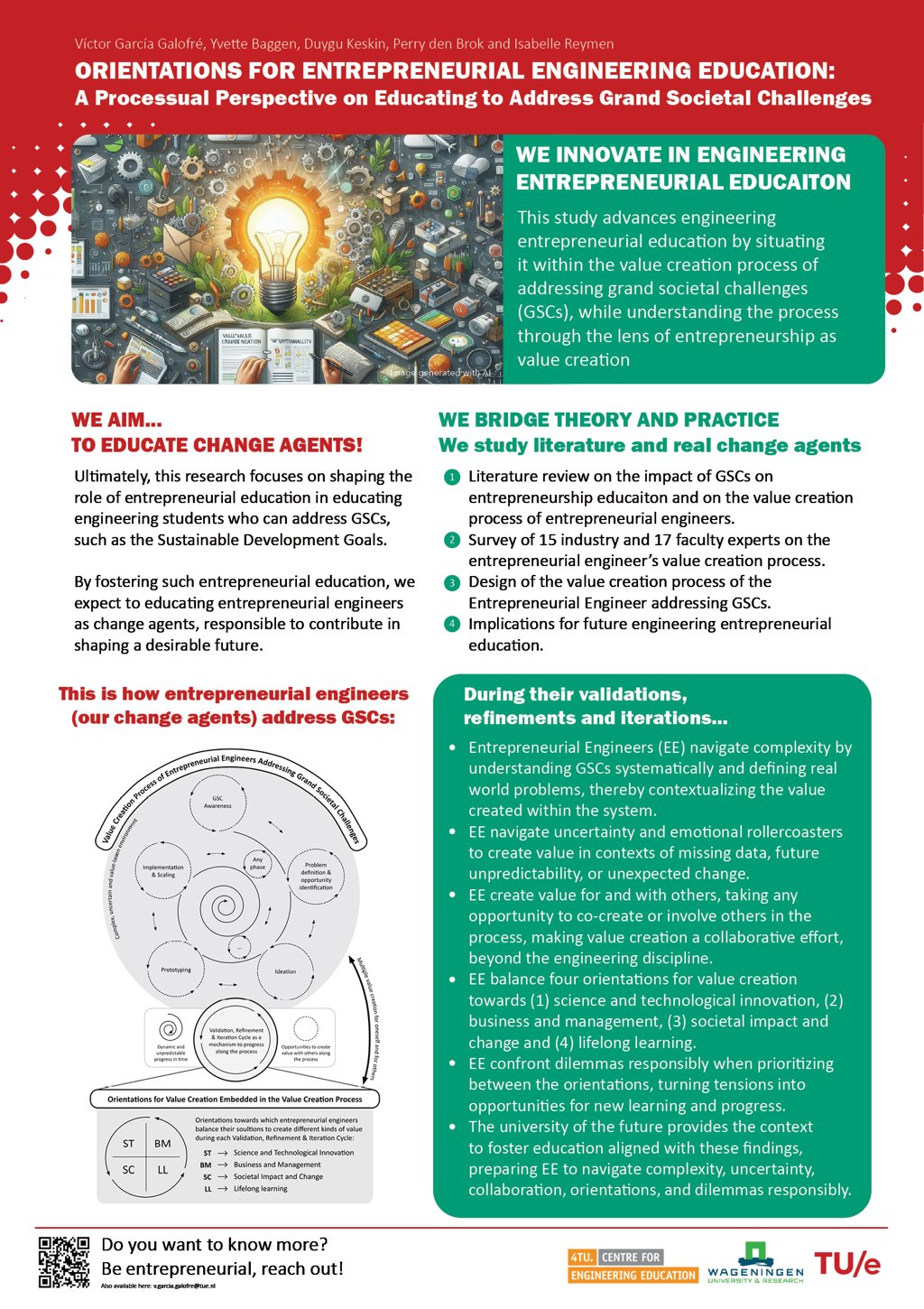Project introduction and background information
This PhD project grew from 4TU.CEE's ambition to educate engineers with an entrepreneurial mindset, enabling them to tackle Grand Societal Challenges (GSCs) as recognized by the United Nations in Agenda 2030 and the Sustainable Development Goals (SDGs). We call these engineers future change agents.
Addressing GSCs requires T-shaped engineering students who combine technical expertise with an entrepreneurial mindset. This enables them to collaborate with peers, teachers, and other stakeholders beyond engineering, shaping solutions through iterative, multi-dimensional value creation under conditions of uncertainty. The value created should be sustainable and can be economic, social, environmental, cultural, or a combination.
To support the development of change agents, universities need evidence-based educational interventions on entrepreneurship for GSCs. These interventions should adopt a broad approach, focusing on learning through action and equipping students with the skills and attitudes to create value with and for others.
Objective and expected outcomes
The aim of this PhD project is to clarify what entrepreneurship education means for GSCs and to help design learning experiences that develop students into change agents capable of societal impact, systemic change, and lifelong learning.
To achieve this, we follow three steps:
- Study how faculty and practitioners support the value creation process to address GSCs.
- Examine the effects of current engineering entrepreneurship education to understand how well it develops change agents and identify opportunities for improvement.
- Propose ways to further cultivate change agents, specifically using value-creation pedagogies.
Results and learnings
Dive into the highlights from our first study in the poster below:


